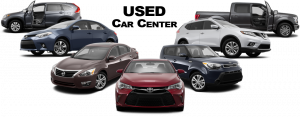7 Things To Do After Buying Used Cars

7 Things To Do After Buying Used Cars
Getting a new car can feel like new music to the ear: it’s quite exciting and you want to tell anyone and everyone.
But it can come with his setbacks, too.
Especially when you are just buying used cars, you’d need to check and make some changes to enjoy the new car and its thrill
Here are 7 things to set you on the right track before and after buying used cars.
1. Transfer the Ownership
First off, what you need to do after purchasing a new car is to secure a clean title.
The title is the official record and seal of ownership for a vehicle, so it’s important to do.
If you’ve got your car from a private seller, then it’s even more important to consider title transfer.
You’ll want to ensure that there are no liens itemized on the back of your title document.
If that’s the case, make sure that the seller gives you an official statement of account and any other liens indicating that every loan has been paid off.
2. Insure Your Car
Once the title part is done, further paperwork and clearing is required before you hit the road, so you don’t get caught by road safety.
If you bought from a legit dealer you shouldn't have much problem about this, your dealer would most likely hint you on the necessary steps and probably even file the paperwork on your behalf.
If you bought from a private seller, you should find an insurance company and get proof of insurance sent to you.
3. Fix Any Minor Issues
The temptation to start hitting the road is often rampant with owners of new cars.
Don’t be that person.
Instead of diving into the road and exposing yourself to major security issues and disappointment, take care of the necessities including replacing the lights, spark plugs, any other quick fixes that demand attention.
It’s important to learn how to attend to smaller issues now, so you’ll be much more empowered to deal with complex ones when they arise.
If you wait to start doing this later, you’ll be met with frustrations, and by that time, it will be too late.
4. Hire a Trusted Technician
Getting a new car is another opportunity to hit the ground running.
But it’s proper to do some checking too.
Although you can admit your car is in a very good condition and may not need any inspection, having some expert to look at your new car for safe and smooth driving journey.
So it’s time to do an extra check-up seeking the help of a mechanic.
Don’t hire just any mechanic.
Instead, find someone adept at his skill in dealing with such cases.
A skilled mechanic knows where to check - fluids, brake, filters – and knows how to best tackle each problem
5. Check the Fluids
The coolant and brake fluid are some of the major essential parts of vehicles, and for that reason, you should give extra care to these substances.
Any problem with these fluids can lead to problems, which may include brake failure or any other unfavorable circumstances.
Other fluids in the system should be checked for flushing, bleeding, or topping off.
6. Check the Brakes
If you have ever driven a car before you know the potential risk that comes with driving without a good brake.
Brakes are extremely important and should be properly taken care of.
So give your brakes some touch and inspect them.
7. The Tyres
Like brakes, the tyres are also as important.
They are the entire part that all other parts rest on and should be checked appropriately to avoid any casualties on the road.
Check them for over-inflation and any potential weariness that may cause problems in the future.
By kingkentus


No comments:
Post a Comment